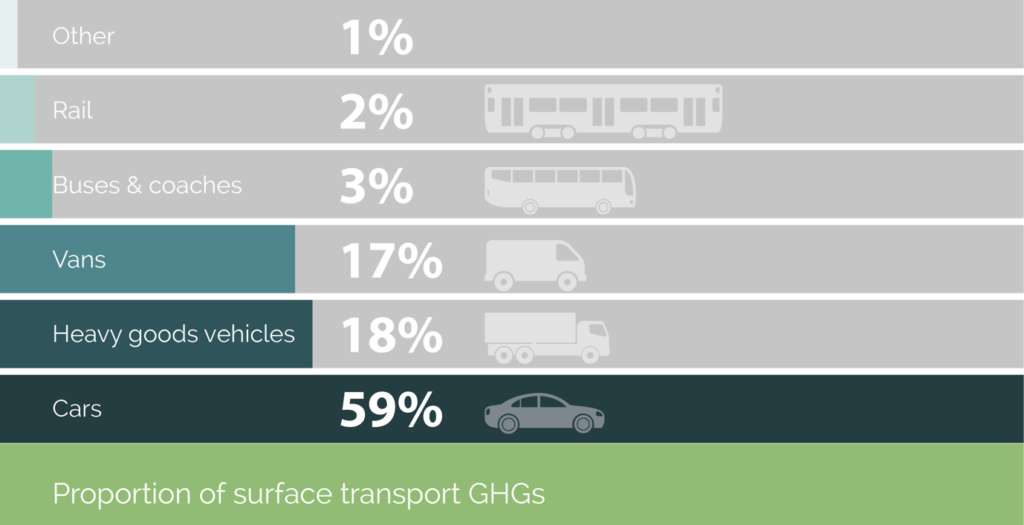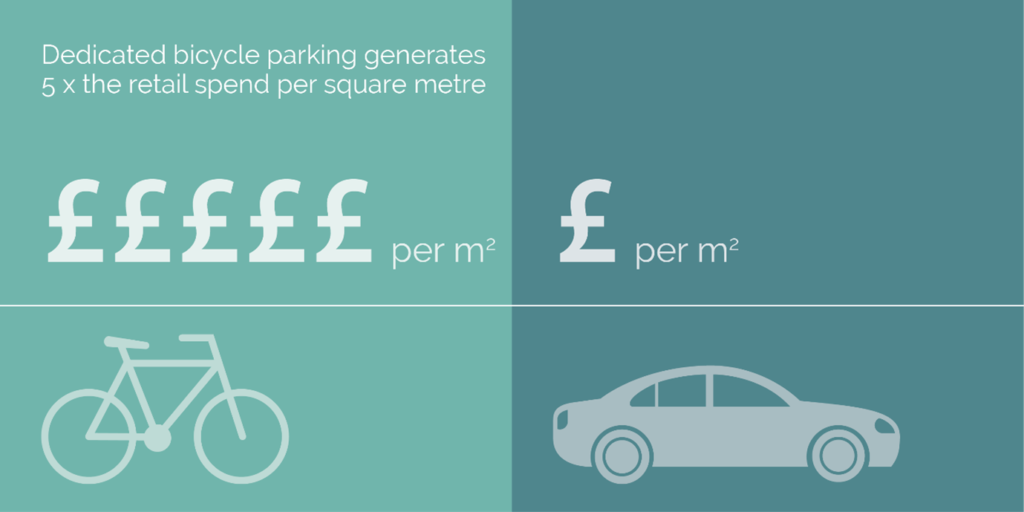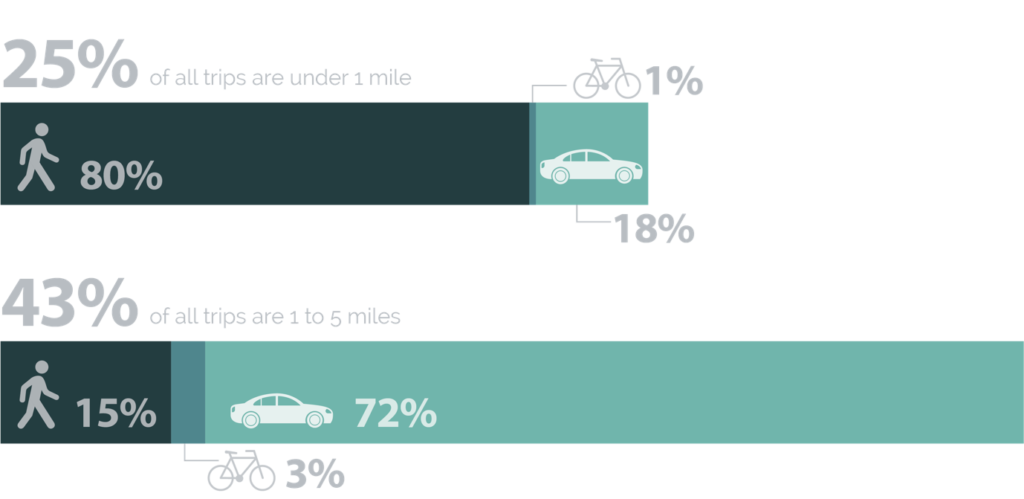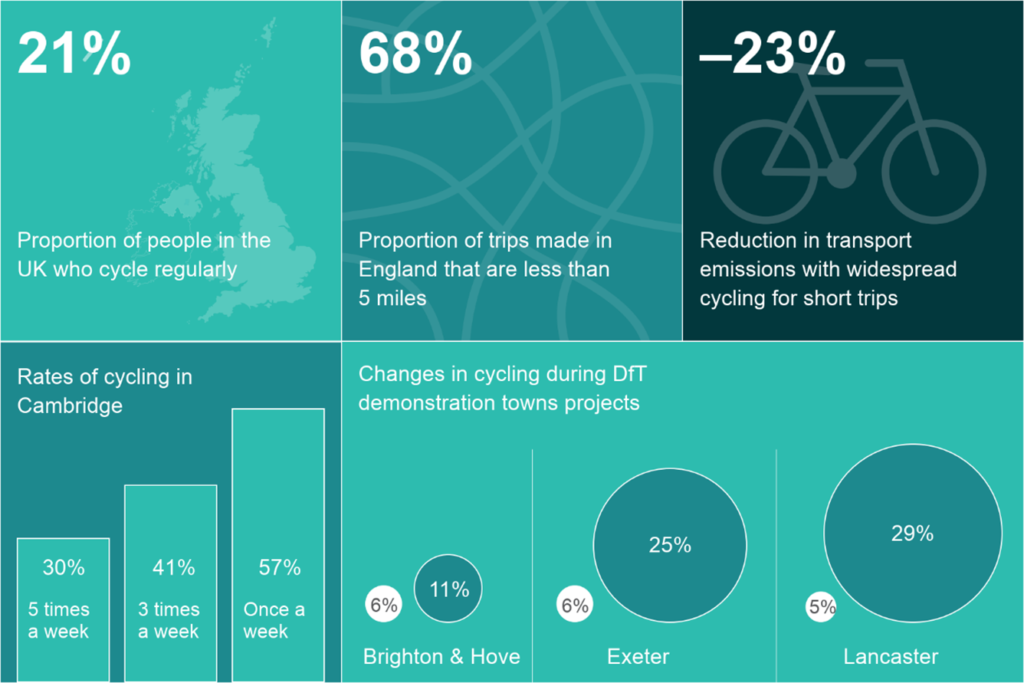Elections took place across the UK on Thursday 6th May. The policies supported by those elected will be key in determining whether the UK delivers on its climate commitments. This is especially true when it comes to transport, as local authorities have considerable influence in shaping the transport options in their communities.
Last year we worked with CREDS to produce a series of 7 policy briefings on decarbonising transport for the Local Government Association. The briefings explain, in detail, how local authorities can decarbonise transport and support a green recovery from Covid19. Our evidence-based recommendations are summarised below.
We encourage you to use these recommendations as a guide to ask your newly elected representatives what they will do to decarbonise transport and support a green Covid19 recovery in your community.
In order to comply with the Climate Change Act 2019 every local authority must get to zero emissions from transport, there are no free passes. If some areas go slower in cutting emissions other areas will need to compensate and go faster, creating even more difficult policy choices.
The rate of carbon reduction required cannot be achieved anywhere simply through business as usual, nudges in behaviour, or tweaking policy priorities. This note is bounded by what the climate science demonstrates is required, not what would be easy to deliver.
This is a climate emergency.
Marsden, G., Anable, J., Lokesh, K., Walker, R., McCulloch, S. and Jenkinson, K. (2020). ‘Decarbonising Transport: Getting Carbon Ambition Right’, Local Government Association: London
Getting carbon ambition right

Recommendations
- Understand the scale of the challenge
- Set a Paris-compliant carbon budget
- Focus on emissions for the whole jurisdiction (not just the local authority’s own emissions)
- Focus on reducing travel demand and helping people shift journeys to public transport, cycling, or walking as well as looking at new technology.
Infographic: Forms of surface transport in the UK and the percentage of Green House Gases attributed to each mode.
The role of buses

Recommendations
- Improve reliability through bus priority measures and sharing information with operators
- Introduce measures to ensure the relative cost of using the bus is lower than that of driving
- Focus on improving passenger experience across the whole journey
Accelerating the uptake of electric vehicles

Recommendations
- Plan charging infrastructure: on-street, as part of new builds, on council-owned property, and at visitor hotspots
- Raise awareness amongst citizens and key user groups such as taxi and delivery drivers
- Incentivise uptake through electric vehicle car clubs and ultra-low emission zones
- Transition the authority’s own fleet to EV
- And remember – EVs alone will not suffice!
Climate smart parking policies

Recommendations
- Ensure new developments are accessible by public transport, active travel, and shared mobility and limit parking accordingly
- Work with employers to reduce commuter parking and promote alternatives
- Expand ‘Park and Ride’ (for rural visitor hotspots as well as urban areas)
- Better manage on-street parking and give some spaces over to bike share schemes, secure cycle parking, and expanding outdoor space for businesses
The role of land use, localisation and accessibility

Recommendations
- Align spatial planning and land-use planning policies with climate policy
- Involve communities in accessibility planning for their neighbourhood
- Support mixed land-use, high density development, good public transport, and active travel to help create ’20 minute neighbourhoods’
Travelling less and the role of online opportunities

Recommendations
- Support measures that make working from home more viable such as high-quality broadband and flexible public transport ticketing
- Lead by example by reducing unnecessary car-based work journeys by local authority staff and contractors
- Manage increased online delivery by supporting the expansion of greener last mile delivery options such as e-cargo bikes, last-mile warehousing, and click-and-collect sites.
This figure shows CO2 changes from commute changes during the UK’s Covid19 lockdowns.
From: Kadambari Lokesh and Greg Marsden. 2021. “Estimates of the Carbon Impacts of Commute Travel Restrictions Due to COVID-19 in the UK.” Findings, April.
Growing cycle use

Recommendations:
- Introduce physical barriers between cycle lanes and motor traffic
- Make key activities easy to reach by bike by providing a network of connected routes, direct access, and uniform implementation across the area
- Make cycling part of the local culture through car-free days and cycle training in schools
If you would like more information about these briefings, please contact DecarboN8@leeds.ac.uk
